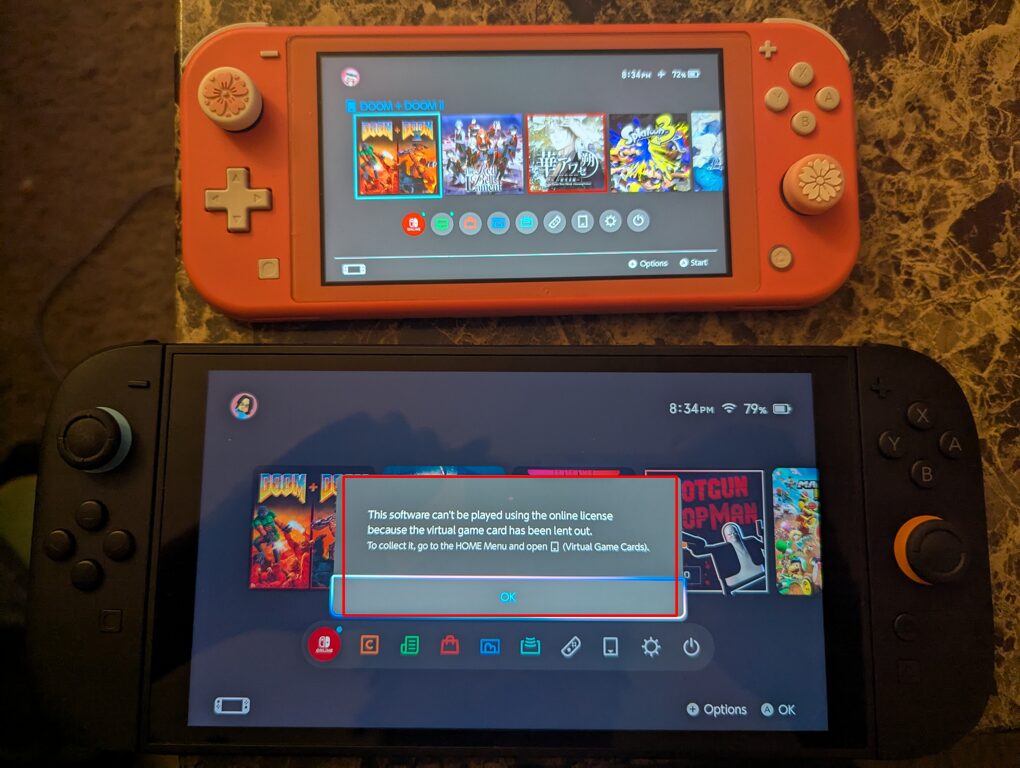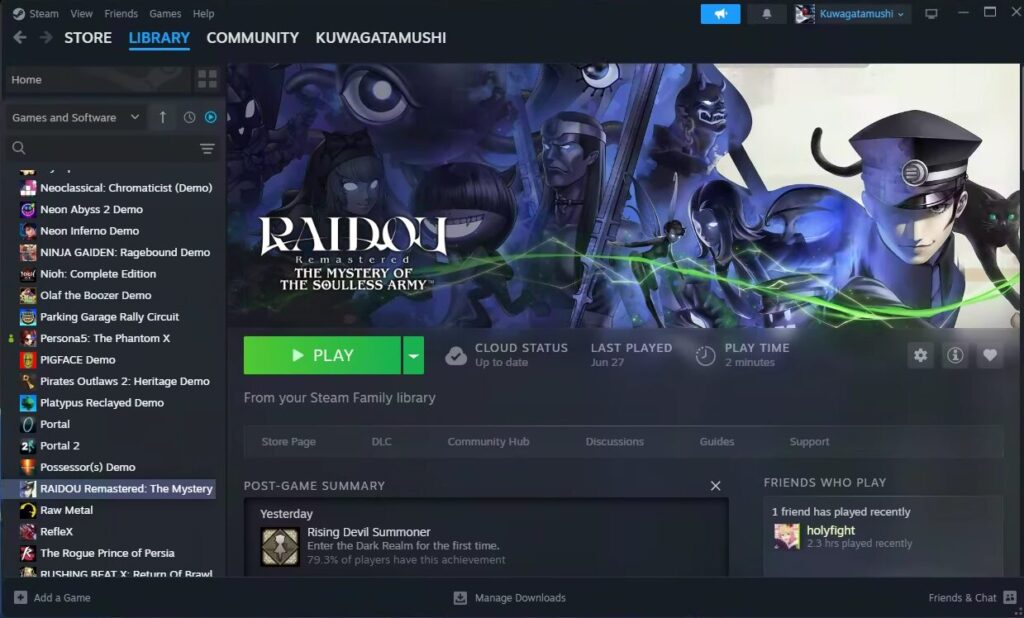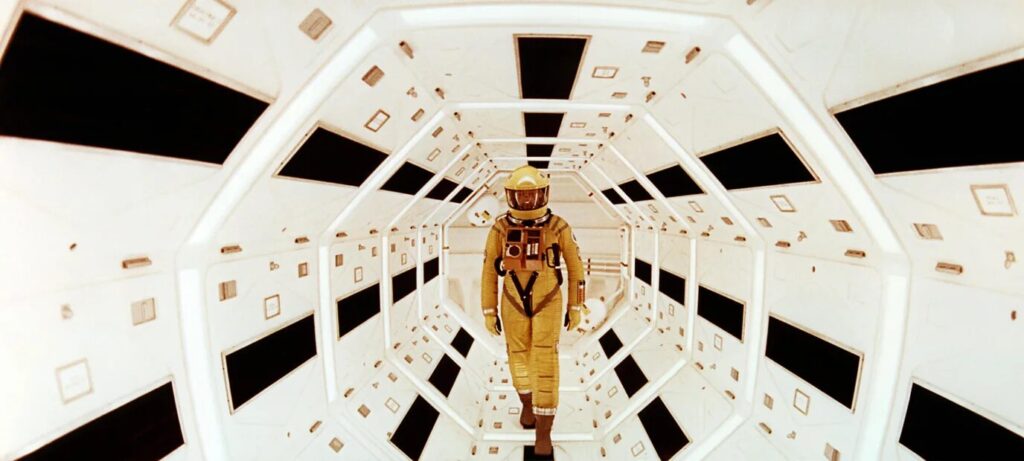
I spent the day doing the work I mentioned in the last post (and then some), all without eating or drinking anything, which led to exhaustion and a need to skip my workout today due to lack of calories. After waking up, I figured I’d at least have a little fun, watch some YouTube, play some games, the typical stuff you do to unwind.
I took the first opportunity to watch Stephanie Sterling’s newest Monday video talking about the forcing of mechanics that may not be good on players of video games, how Nintendo is famous for doing just that, and how it’s done it again with the Switch 2’s new Virtual Game Card system. This is something that Oliver McKenzie also talked about for a bit on the most recent Digital Foundry Direct podcast, and I’ve experienced at least one of the problems firsthand.
After watching Sterling’s video, I decided to test this out with DOOM + DOOM II (a game you should definitely buy since it’s CHEAP) and, even with Switch digital licenses enabled, I just wasn’t able to run the game on my Switch 2 once I lent the game to my wife.

I don’t have a second Switch 2 to test this with, but I’m unsure if the digital licenses system still works in the same way it did before either, where you could designate a “secondary” Switch and, through online/offline trickery, play the same game on two consoles simultaneously. I’ll test it and update the post when I’ve figured that out.
My personal opinion is that Nintendo created the VGC system to curb piracy via lending software. It’s a worse method of game sharing than the old method, and definitely worse than Steam Family Sharing, which was conceptualized, tested, and came out of beta before Nintendo even announced this.

I don’t do this very often, but I’ve been playing my wife’s copy of RAIDOU Remastered: The Mystery of the Soulless Army. Since she’s also playing it, when we play simultaneously, I just switch to playing it with Steam in offline mode. The only consequence of all of this is my true playtime is incorrect in the Steam time tracking, and I have to remember to go back online to upload my save to the cloud for when I play on Steam Deck. Uh … I don’t recommend it – it’s a certified battery drainer.
While there are issues with the implementation of the Family Sharing program, I’ve been pleased by the fact that it’s opt-in by default for publishers. As far as I’ve been able to tell, only Ubisoft has been keen to not allow sharing of, say, Assassin’s Creed Shadows (I couldn’t play my brother’s copy). If Nintendo had gone with something like this, sharing of games could’ve been painless compared to having to be literally right next to my family member when I want to lend them fucking Snake Pass.
But that’s not the point for Nintendo – they, the most profitable video games company on Earth, need to extract more money from our pockets, so you need to buy two copies of Mario U Deluxe if you want to play it at the same time as your daughter. A normal person may not care as much, but my family spends its time together gaming, so it’s a bit of a drag.


